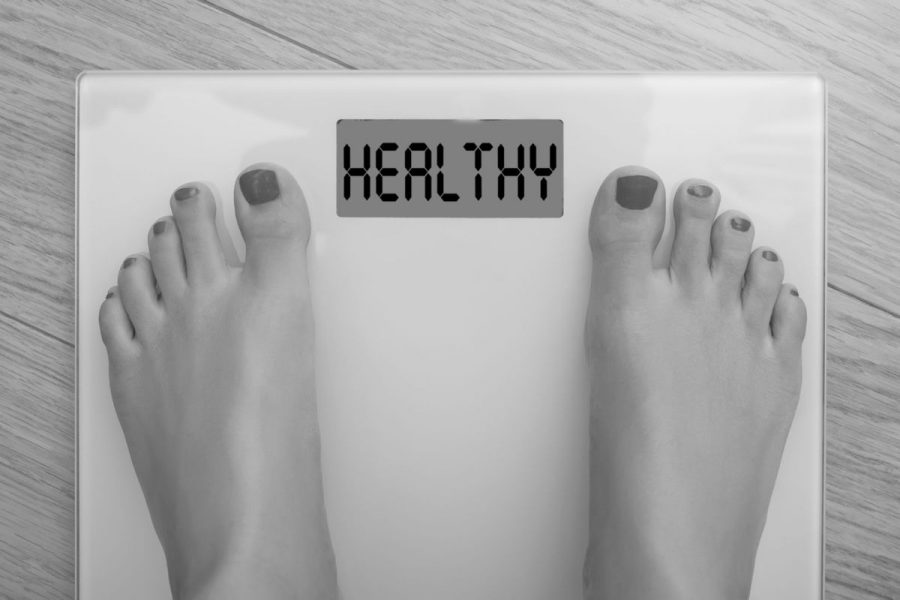Editorial: The Political Correctness of the Anti-Body Shaming Movement Has Its Dangers
A new movement is starting. It is turning people against the foundations of today’s society to make the world a kinder and more sensitive place for everyone. This movement is the PC movement, or political correctness movement. It abducted youth in excessively liberal communities, giving them the desire to right the wrongs of our world, whether it be by challenging massive social institutions or criticizing word usage that may offend those of a particular group. And while many may view this as a positive movement, in some areas, the PC movement has crossed the line, even to the point of damaging our collective health to forward their message.
A focal point of the PC movement is to retaliate against body shaming. Body shaming is as straight-forward as it gets: it is humiliating someone about their body, whether it be that they are too short, too tall, too heavy or too skinny. In a collective social movement against this type of criticism, many have taken up arms against modeling companies for imposing unrealistic body expectations upon our youth.
In their efforts to quell body shaming, the PC movement has victimized young girls, claiming that consistently seeing skinny, beautiful women on products they buy or on television they watch is normalizing that body type, thus spurring the idea in said female that her body is not up to par. This has led to a tripling in bulimia in women between 10-39 years old. Many liberal modeling companies have taken on this stance; Macy’s, Lane Bryant and Avenues, and have employed overweight models to market products targeted toward that weight group.
Socially, the introduction of overweight models into the workforce is a victory, creating more acceptance to those at a higher body weight. In terms of health, however, this is a massive defeat. The PC movement has successfully delegitimized the need for physical health and replaced it with emotional well-being. They emphasize the idea that everyone has their own body type and should feel great with what they have and not “conform” to unrealistic standards.
Just as picturesque models normalize the idea of unrealistic body expectations within our youth, overweight models can have the same effect. By constantly being bombarded with advertisements featuring overweight people, those who are overweight or are on the path to be overweight will continue down that path since being heavy has been normalized. Data provided by TheStateOfObesity.org allows us to truly see this impact, as there has been a four percent increase in childhood obesity since 1999 and adult obesity rates have almost tripled since the 1960s. The PC movement has transformed from one advocating for equality and respect to advocating for bad habits and a possible early death.
The companies using overweight models to promote their products are stripping their market of their money and their lives. Per an analysis done by George Washington University, overweight women spend almost $5,000 more on medical care while overweight men spend over $2,500 more. Plus, in terms of overweight children, insurance coverage costs doubles to almost $4,000.
The idea that body shaming is causing depression among those who are overweight is a legitimate claim. However, “normalizing” overweight people isn’t a permanent cure to this depression; eating healthy and exercise is. A study published in an issue of Preventative Medicine found that children aged 13 to 15 who eat a diet of sugary foods and refined products are more likely to be depressed, become aggressive and engage in delinquent activities compared to those on a high-protein, more natural diet. Those who use food to cope with depression are further eating themselves into depression, and will soon be eating themselves to their deaths. Plus, it has been proven that the more social relationships one has, the higher levels of confidence one has in themselves. Eating poorly debilitates these people from creating and maintaining social relationships, and may cause obesity and illness, further leading to depression. Those who use food to cope with their depression should redirect that energy into maintaining a healthy lifestyle, thus alleviating their depression.
While some are rivaling the normalcy of being overweight, it may already be too late. Per the National Institute of Diabetes and Digestive and Kidney Diseases, over 60 percent of women and 70 percent of men are overweight, and over 30 percent of men and women are obese.
Instead of enabling or encouraging being overweight, we need to positively enforce the idea of being healthy. Since there is no getting rid of overweight models, after every advertisement advocating our deaths, whether that be with overweight models or food, a disclaimer should be added listing the drawbacks of an unhealthy lifestyle and the perks of maintaining healthy one, similar to how we approached the smoking epidemic.
This movement towards “body acceptance” has enabled, if not encouraged, youth and adults alike to become or stay unhealthy. It has already been proven that being overweight can lead to an increased chance of acquiring diabetes, certain types of cancers, and increases the chances of one’s premature death. Companies who are supporting this movement are not doing it to help their market feel better, rather, they are unlocking an overweight market worth a potential 20 billion dollars. These companies are putting profit over the collective health of our society, yet we fool ourselves into believing they are on our side, trying to spread the message of universal acceptance. America’s obese population is growing, and these companies, supposedly PC companies, using overweight models and messages of equality as their vessel, just want a piece of the pie.










